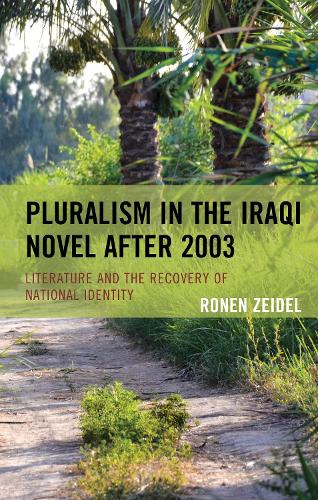
Pluralism in the Iraqi Novel after 2003: Literature and the Recovery of National Identity
(Hardback)
Publishing Details
Pluralism in the Iraqi Novel after 2003: Literature and the Recovery of National Identity
By (Author) Ronen Zeidel
Bloomsbury Publishing PLC
Lexington Books
13th January 2020
United States
Classifications
Professional and Scholarly
Non Fiction
Islam
History of religion
Islamic groups: Shiah, Shiite
892.737099567
Physical Properties
Hardback
222
Width 160mm, Height 229mm, Spine 22mm
526g
Description
Pluralism in the Iraqi Novel is about the use of literature and the novel to express the new content of an Iraqi national identity constructed after the American invasion of 2003. Instead of the homogenizing national identity in Iraqi literature created before 2003, postoccupation literature presents Iraqi society as a kaleidoscope of multiple religious identities converging in an accommodating Iraqi national identity. The author argues that this could not have happened without the upheaval of 2003 and its consequent results: democracy and political restructuring that incorporated Shia for the first time into the ruling political coalition in recognition of their numerical majority. Literature was consequential to processing the complicated subject of Shia-Sunni relations and the sectarian identity of each and, even more, in the wake of the geopolitical events of 2003, literature was instrument in bringing representation of the Kurds, the small minorities, and even the last Jews of Iraq to the fore. As such, literature demonstrated its revolutionary power and formed the basis for a New Iraq.
Reviews
Ronen Zeidels excellent book is a must-read for anyone who is interested in the history of modern Iraq, in post-dictatorship societies, especially those that had been afflicted for generations by malignant ethno-religious conflict. The book is also inspiring for those who are looking for a ray of hope. Zeidel shows how, almost over-night after 2003, Iraqi culture began to celebrate diversity and pluralism rather than suppressing it as was the case before the downfall of the Bath regime. The book shows how culture and particularly the novel became a tool for repairing the wrongs of past nation building attempts, and the vehicles for formulating a more inclusive national Iraqi identity. Zeidel covers a remarkably wide horizon of production mainly of young novelists and his analysis is an eye-opener. -- Amatzia Baram, University of Haifa
Author Bio
Ronen Zeidel is research fellow in the Moshe Dayan Center in Tel Aviv University and deputy director of the Center for Iraq Studies in the University of Haifa.
